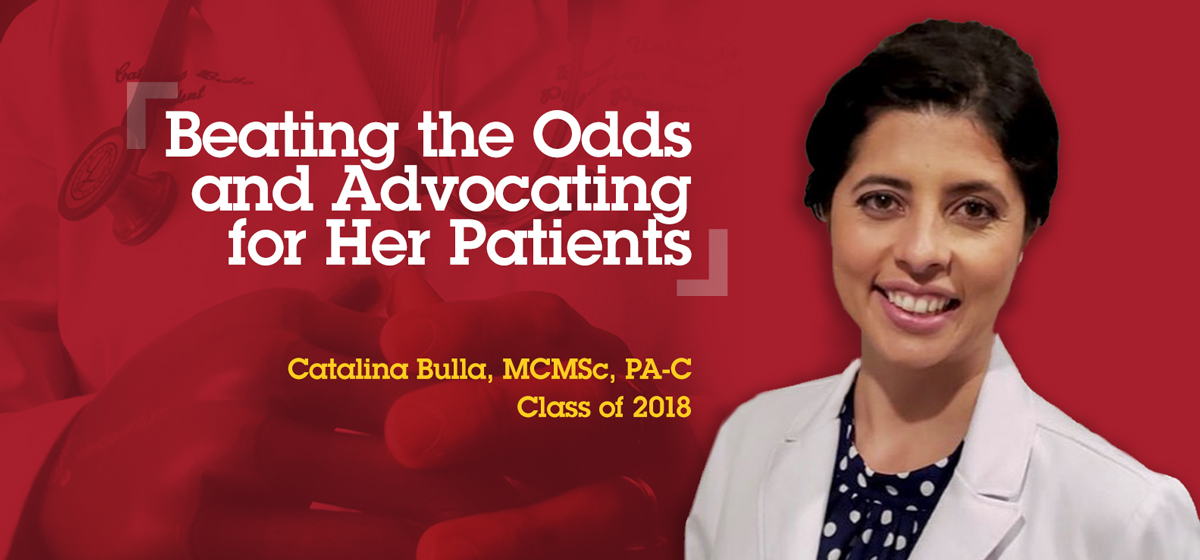Catalina Bulla, MCMSc, PA-C
Barry University Class of 2018
After graduating from Barry University’s Physician Assistant program, in 2018, Catalina Bulla made a major move. She left Miami for Winston-Salem, NC, where she accepted a position as an internal medicine and cardiology PA with Wake Forest Baptist Health. The geographical change was significant for Bulla, whose Hispanic heritage made her a member of the population’s majority in Miami. “Here we are [the minority],” she says of her new city, “which means less access to fair care due to language difficulties.” Right away, Bulla began to witness the barriers her minority patients faced, so she stepped in to help. “One of my biggest interests every day is to support my department in a way that I can help them communicate better and provide better health care to our Hispanic patients,” she says. “My supervising MDs have even found ways to learn Spanish, and they do it very well!”
Advocating for her patients comes naturally to Bulla. She knows what it feels like to be treated as an underdog, and she understands the empowerment of a strong support system. “I was born without my right forearm, a congenital amelia secondary to amniotic band syndrome,” she says. Throughout her life, she faced fears that she might not be able to keep up with her peers. During her rigorous training at Barry, she encountered one such challenge. “In the middle of PA school, I had to get used to a new bionic prosthetic and learn how to make it work to be able to do sutures, surgical knots, pap-smears, physicals, intubations, auscultation,” she says. “It was not easy, doubt clouded my mind, it took long hours of practice, lots of tears and the support of my family, friends, and my professors, especially my mentor and advisor, Professor Demshock.”
It’s this kind of perseverance that has made Bulla something of a superstar among her patients and colleagues. She occasionally receives hand-written cards from patients she has helped through pre- and post-cardiac surgery, and she has been granted opportunities to advance in the sub-specialization of Electrophysiology. “Here is when I discovered my love for cardiac arrhythmias!” she says. Wake Forest Baptist Health has also encouraged her to instruct students and train new advanced practice providers (APPs); and, amid the global pandemic, she was tasked with being a pilot provider, testing a new telehealth interface and recommending improvements.
Bulla credits her Barry training with much of her career success. “The PA program is the real deal!” she says. “When they tell you that you will not only need to learn medicine, but also learn how to practice medicine in 27 months instead of the usual 84 months a physician has, you say to yourself ‘how hard can it be?’ Then, during didactic year, the first long nights come were you don’t have time for a 10 minutes nap, weekends where your family and friends get together and you just can’t even think about it because finals are coming.” The intensity of Barry’s curriculum motivated her. During her clinical rotations, she adopted the mindset that every day was her first on the job, raising the pressure to perform her duties expertly. This helped her realize what she needed to improve upon, study, and ask her professors to explain. She also looked to Barry’s faculty for moral encouragement. “The emotional support of my professors, in specific my mentor and advisor, provided me with the courage and trust I needed, because medical and technical skills you will learn with time.” Now, as a PA-C with Wake Forest Baptist Health, Bulla continues learning, and she does it at rapid speed.

